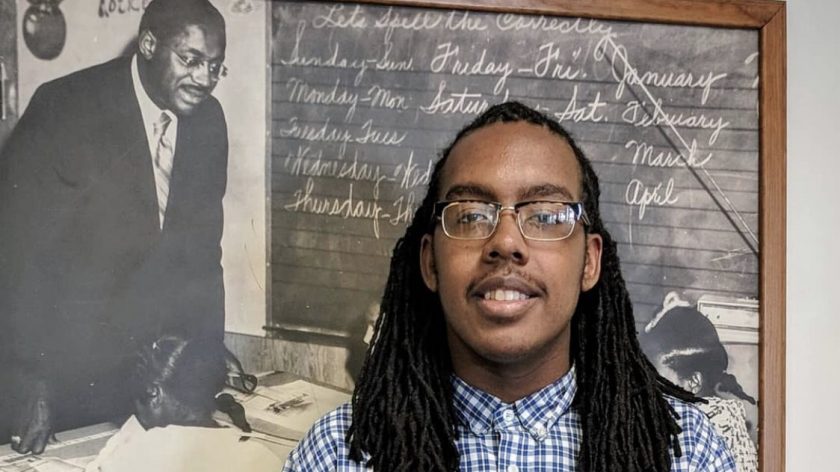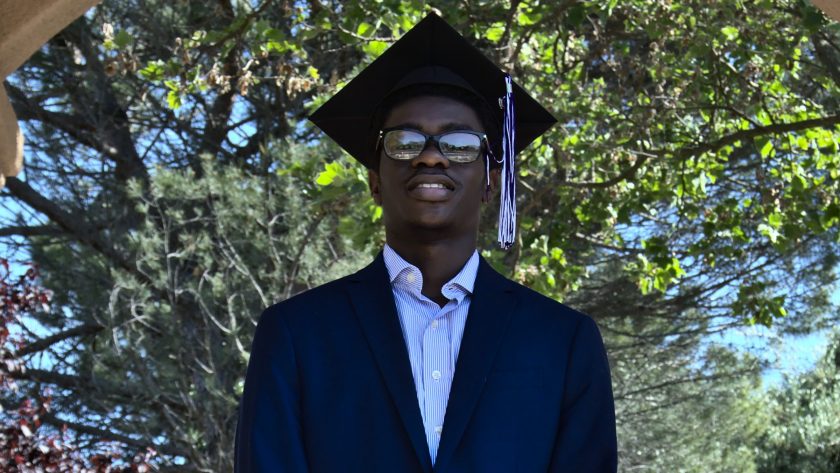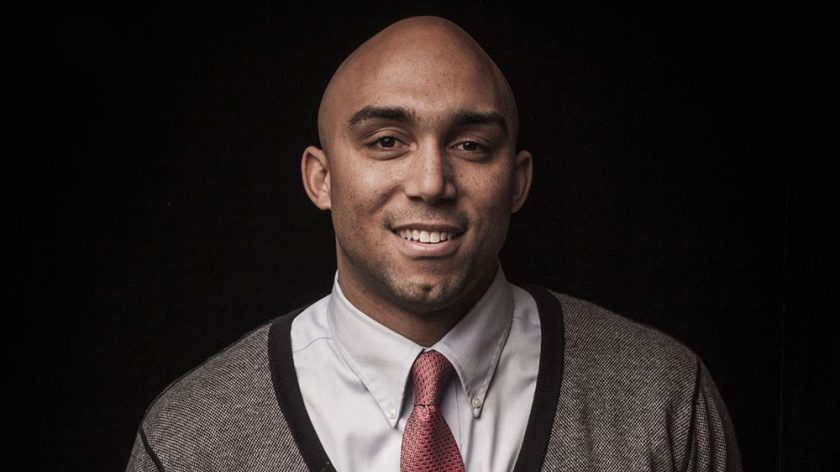The Hidden Genius Project: leading incubator of young Black male entrepreneurs and technologists
In 2012, five entrepreneurs, all African American men, wanted to create a program for young Black men that would open the doors to technology, entrepreneurship, and leadership. They launched The Hidden Genius Project in Oakland, CA with no staff and no money.
Since then, the program and organization has grown, engaging more than 7,600 students in 442,400 hours of direct training through its programs, as the organization’s 2020 Annual Report explains.
“We’re trying to elevate the potential of our young people as leaders who can change their communities,” says Brandon Nicholson, the executive director and one of the five who launched The Hidden Genius Project. “We want them to pursue their dreams, achieve their goals, and leverage technology along the way. We anchor in the genius piece because we want young Black men to know that you can’t wait for somebody else to validate you.”
The heart of The Hidden Genius Project is its 15-month, Intensive Immersion Program for high school-aged boys, which starts with a 40-hour per week summer program followed by after-school and weekend classes. The program runs in Oakland, Richmond, and Los Angeles, Calif., and it’s a crash course in technology, business, and being part of a community of brothers. Participants design apps, create businesses, and talk about life. African American mentors provide instruction, insight, and support.
Many immersion program alumni become youth educators who teach in The Hidden Genius Project’s Catalyst Program, short-term events and workshops that expose young people of color to mentors, basic computer programming, and technology careers. The program has served 270 African-American boys and young men across its Oakland, Richmond, and Los Angeles sites. Its success is in the numbers: a 95% retention rate, 98% high school graduation rate, and a 95% post-secondary education matriculation rate. In 2020, David Armstrong, Jr., became the first immersion program alumni to graduate from college. He currently works as a Jr. Devops Engineer at Primer.ai.
Nicholson says there was never a strategy to diversify Silicon Valley. The focus is on the young men and their potential. Doing this work means sweeping away stereotypes that all young Black men can successfully do is become athletes or entertainers.
“This white supremacy narrative is cutting off all of our collective noses to spite our collective faces,” Nicholson says. “When we don’t recognize everyone’s genius, we lose the benefits of what that genius can bring.”
The Covid-19 pandemic has made the work harder, pushing programs online. And Nicholson is working to create space for the program’s young geniuses to process the racial violence and trauma that dominate the news.
“When we don’t recognize everyone’s genius, we lose the benefits of what that genius can bring.”
DR. BRANDON NICHOLSON
EXECUTIVE DIRECTOR, THE HIDDEN GENIUS PROJECT
Nonetheless the organization is keeping its commitment to growth. A Patrick J. McGovern Foundation grant is helping with general operating costs. The organization is participating for the second time in the Harvard Business School Community Partners initiative, a pro-bono program that pairs organizations with business school alums who want to make a positive impact in their community.
The organization has a strategic plan to achieve its goal of being “a global leader in Black male youth development, as well as the leading incubator of dynamic young Black male entrepreneurs and technologists.” Already underway is the Alumni Venture Seed Fund, which is helping geniuses learn about venture capital and pitch their business ideas to investors.
What’s most impressive are the young Black men who bring the program to life. They have grown into a community whose members support each other as friends and in business ventures.
Genius Elijah Hynson
Elijah Hynson is a video gamer who loves movies and books. Hynson enrolled in the Intensive Immersion Program in 2016, when he was in the ninth grade.
For Hynson it was an education in technology and a clear-eyed look at racism.
“The program gave me a sense of what I want to do in life, which is computer science,” he says in an interview with the McGovern Foundation.
He also learned about systemic racism, as he explains on The Hidden Genius Project’s website, “and how society ultimately perceives black people, especially Black men.”
He learned to code, using HTML, CSS, JavaScript. “We learned a lot about what it means to create an algorithm and about figuring out exactly what you want your code to do.” That process involved envisioning a goal, coming up with a plan, and translating that plan into a computer code. Hynson’s project was writing the code for a messaging app for gamers.
Discussions about leadership covered current events and societal problems. There were also conversations about what it means to be Black, “being proud of who you are, knowing your roots, and not censoring yourself,” Hinson says. “When you have the ability to live uncensored, you can truly live well.”
The program also taught lessons in entrepreneurship.
“You have a business idea, but you really have to think about why your idea should be a business. You need to know exactly how and why your business would benefit society.” It’s a mindset, he says, that teaches you how to network with people and push through hardships.
Once he was done with the Immersion Program, Hinson, like other Immersion alumni, became one of The Hidden Genius Projects’ youth educators, traveling – before Covid — to a Los Angeles school to teach younger students how to write code to control mini robotic balls.
“Seeing younger kids go Wow! that made me really happy. It gave me confidence in my skills as a teacher.”
Hynson is taking a gap year, and next fall he plans to attend the University of California, Santa Cruz, where he’ll major in Computer Science: Computer Game Design.
“As I continue to pursue a career in the technology and gaming industry,” he says in the interview, “I understand this is a world where I have to mentally prepare myself for challenges and obstacles that I may have to face.”
Genius Ndene Diallo
Ndene Diallo was also a ninth grader when he enrolled in the Intensive Immersion Program.
“The first day is like no other,” he recalls. “You walk in and see a bunch of random faces, and you don’t really know where to go. But as soon as the program started, you felt the connection between everyone. They put you in a situation where you had to open yourself up. You couldn’t be shallow or shy.”
Diallo says he hung out with the wrong crowd in high school and he had a tough time being disciplined about doing his schoolwork. He had taken some coding classes on his own, but he’d struggled through them. The Hidden Genius Project gave him the support he needed to succeed.
“They’re very persistent,” he says of the staff members. “They had all these opportunities for me, but I needed to earn them. So, with that in mind, I just did a 360. And obviously, change takes time, so with time I got better, and I developed a different perspective.”
The best part of the program for Diallo were the group projects: coding projects as well as research projects on business topics, technology leaders, and the history of segregation.
“We were all together. We were always talking. And hearing what somebody thinks gives you insight into who that person is. Even if you don’t agree with them, knowing their thoughts forms a stronger bond.”
Seeing the tech world up close also made an impact.
“A field trip to Google really stood out for me. It gave me insight into what daily tech life is like, seeing how they operate, how they structure plans, how they come up with and implement solutions.”
“The field trips gave me a sense of identity because in those moments I thought, I can also have this one day. I can make this happen.”
And thanks to lessons in entrepreneurship, Diallo has also set up his own technology business.
“If you need a UI [user interface] design, I can do that for you. If you need a website, I can do that for you, or if you need a mobile application, I can do it. I don’t want to fall into just one category. I want to be open to everything.”
After he finished the Immersion Program, Diallo went on to become a youth educator, working with younger kids of color.
“When I see that someone doesn’t understand a topic, I do my best to relate to them so I can figure out exactly what they don’t understand. Then I can analyze how to best teach them.”
Ask Diallo if he would ever become a teacher, and he rises above the question.
“I believe everybody is a teacher in some way. Everybody is always passing down some sort of knowledge.”
Part of what drives Diallo is a lesson he learned from The Hidden Genius Project.
“Everybody has doubt, but I’ve learned to analyze what makes me doubtful, and I’ve learned to move past the doubt and take action.”
Diallo is currently attending Diablo Valley Community College and majoring in computer science. He plans to transfer after two years to San Jose State University. He’s also planning his future as a genius who is connected to his fellow geniuses.
“Some of us have already partnered with each other to build businesses. And some of us are talking about doing that in the future. The Hidden Genius Project keeps shining a light on us, and now we have so much potential for growth.”


